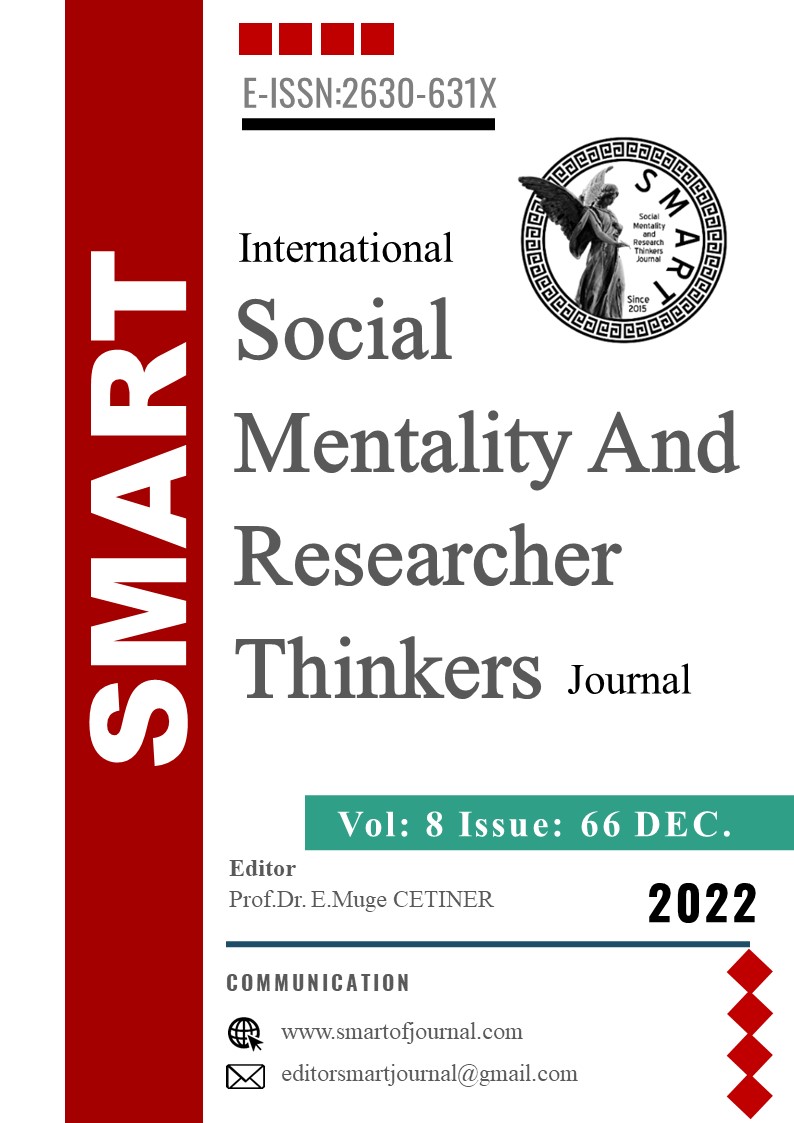Author :
Abstract
Appiah’a göre yabancıları dışlayan katı bir ulusalcı anlayıştan da kendi yurttaşlarını ve yakınlarını başka herkesle aynı kefeye koyan katı bir kozmopolitanizmden de kaçınıp bir orta yol bulmak mümkündür. Appiah bunlar arasında bir tercih yapmanın yersiz olduğunu ve evrensel insani özümüz ile özel ilişkilerimizden ve aidiyetlerimizden kaynaklanan yerelliklerimizden aynı anda faydalanan bir yaklaşım geliştirebileceğimizi söyler. Onun kısmi ya da yurtsever kozmopolitanizm olarak adlandırdığı bu yaklaşımının iki ana ilkesi vardır. Bunlardan ilki ötekilere karşı yükümlülüklerimizn olduğu anlamına gelen evrensele duyulan kaygı; ikincisi, tekil, somut insan hayatına duyulan saygı ve ilgiyi ifade eden meşru farklılıklara saygıdır. Bu iki ilke çerçevesinde ortaya konan kozmopolitan yaklaşımın ereği ise ona göre söyleşidir. İnsanlık tarihini sürekli ötekiyle kurulan ilişkinin tüm kimlik ve kültürleri melezleştirdiği bir küreselleşme tarihi olarak alan Appiah açısından söyleşi salt gerçek anlamında alınmaz, ona göre bir sanat eseri okumak, turistik bir gezi yapmak gibi başka kültürlerle kurulan ilişkiler de birer söyleşidir. Söyleşinin ana hedefi ise konsensüs ya da uzlaşma değil alışmadır. Alışma kavramı birbirimizin farklılıklarını, bu farklılıklara aktif olarak ilgi de duymak suretiyle tolere etmeyi ifade eder. Bunun yolu Appiah’a göre aynı etnik kültürü ya da değerleri değil aynı politik kültürü paylaşmaktır. Söz konusu politik kültür liberal demokratik devlet ve onun kurumlarına duyulan bağlılığı ifade eder.
Keywords
Abstract
According to Appiah, it is possible to find a middle ground by avoiding a rigid nationalist mentality that excludes foreigners and a rigid cosmopolitanism that equates its own citizens and relatives with everyone else. Appiah says that it is inappropriate to make a choice between them, and that we can develop an approach that simultaneously benefits from our universal human essence and our localities arising from our special relationships and affinities. His approach, which he calls partial or patriotic cosmopolitanism, has two main principles. The first is concern for the universal, which means that we have obligations to others; the second is respect for legitimate differences, which expresses respect and interest in singular, concrete human life. The aim of the cosmopolitan approach put forward within the framework of these two principles is the conversation. For Appiah, who constantly takes the history of humanity as a history of globalization in which the relationship with the other hybridizes all identities and cultures, the conversation is not taken just in its true sense. According to him, the relations established with other cultures such as reading a work of art and making a touristic trip are also kinds of conversations. The main goal of the conversation is not consensus or compromise, but habituation. The concept of habituation refers to tolerating each other's differences by actively engaging in those differences. The way to do this, according to Appiah, is to share the same political culture, not the same ethnic culture or values. This political culture expresses a commitment to the liberal democratic state and its institutions.





